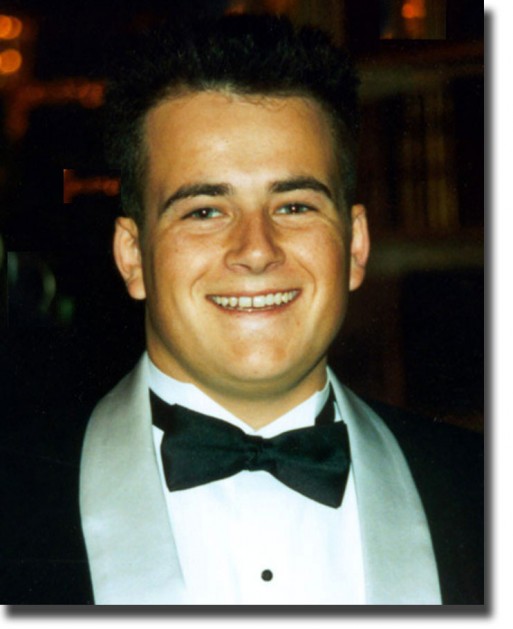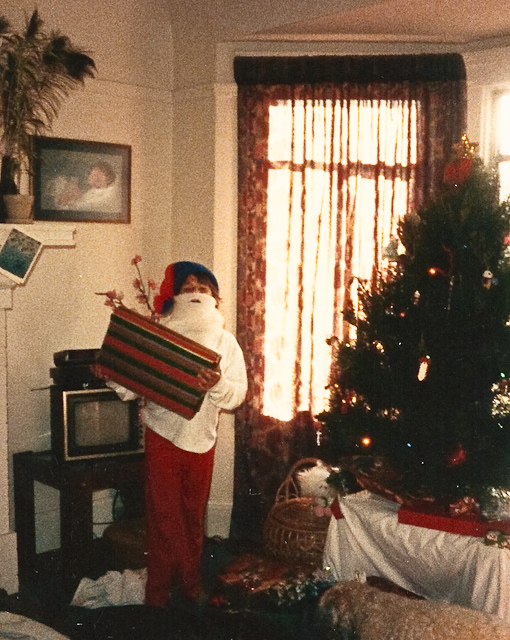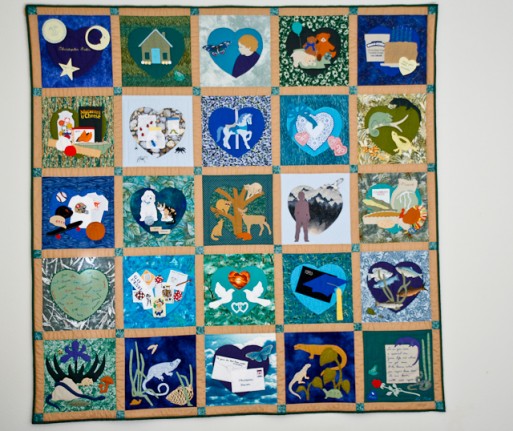This is Radha’s story, as told by Jeanette Summers. Our “Opening Our Hearts” stories are based on people’s real-life experiences with loss. By sharing these experiences publicly, we hope to help our readers feel less alone in their experience of grief and ultimately, aid them in their healing processes. In this post, we tell the story of a woman whose 21-year-old son was murdered in his apartment.
On March 21st, 1996, a sheriff came to my front door. I knew my 21-year-old son, Christopher, had accumulated several parking tickets — and I just thought I’d have to discuss a warrant.
“This isn’t about parking tickets, ma’am,” he said, handing me a slip of paper. He pointed to a phone number in red ink, “You need to call this number right away.”
I went inside. I dialed.
A voice answered, “County Coroner’s Office.”
Oh my God. My knees almost buckled.
“Are you related to the deceased?” she asked.
She explained that Chris’ 34-years-old roommate had shot him multiple times for “not putting dishes in the sink.”
All I could do was rock back and forth, muttering, “They killed him,” over and over.
My daughter had driven home from school, all dressed up to go to dinner with my brother (and her favorite uncle) who was visiting from New Jersey. My now-husband, Gary, relayed the news I couldn’t bear to tell.
“Christopher’s been shot,” Gary told her.
“What?” she stammered. “What do you mean? Where is he? What hospital is he at?”
“No,” Gary said, shaking his head, looking at the ground.
She collapsed on the spot.
The days that followed were hell — the calls made to dozens to explain what happened; constantly having to hear their reactions. It was impossible for me to be present for them, even if I was grateful to be surrounded by so many people. Everyone needed to express his or her condolences to a receptive ear. But I was in no position to give anyone anything. I could barely be there for my daughter, whose grief was as deep, fresh and maddening as my own.
“Everyone needed to express his or her condolences to a receptive ear. But I was in no position to give anyone anything.”
That being said, the day that I found out Christopher was murdered, I had a flash of clarity (what some might call a “divine intervention”). Most of my memories of those hours have bled together, but this I remember quite distinctly: I was standing outside when the fog in my head momentarily lifted, uncovering the core principles and intentions that would come to color my life over the years to come. I’m not going to have another child, said the calm, focused voice in my head. And I’m not going to kill myself. I’m going to live. And I’m going to thrive. I’m going to get through this — but it is not going to be easy.
The two-year murder trial delayed a lot of the progress I’d made in coping. I found myself wishing that my son had died of a disease, or in an accident – anything I could understand better than senseless violence. For a long time, I withdrew socially. I felt so vulnerable and broken.
I was also involuntarily thrown into a mental relationship with the man who had taken my son’s life. I didn’t want to think about him, but how could you not think about someone who stole something so precious? My one interaction with him was gravely disappointing — he showed zero remorse. “I had the right to protect myself in my own home,” is all he had to say. By the time I finally felt ready to speak to him, I had worked on myself to the point where I was prepared to offer him my forgiveness on a silver platter.
“I didn’t want to think about him, but how could you not think about someone who stole something so precious?”
But he wouldn’t take it.
I left the prison that day taking solace in knowing that I’d done my share. Over the years, I’ve learned to gracefully accept an apology that I will never, ever get. And when the trial ended, I had the space and clarity I needed for my healing process to accelerate.
Time’s hands have worked on me with gentle, loving care. I’ve made it my personal mission to help others who have experienced similar, tragic loses. I’ve even written and published a book on the grieving process.
It’s a mind-boggling paradox, but it’s true: losing my son has made me a better person. I’m exponentially more empathetic – kinder, more sensitive. I’m always available for my family, or to offer hope and understanding for others who are struggling. I’m open to whatever life throws my way, because now I know I’m capable of surviving anything.
On the day that Christopher was killed, a close friend said to me, “Don’t let anybody tell you that you ever have to get over this.” These words have stayed with me over the 17 years since then. Why would I want to get over him? Why would I want to close my heart to the love that he inspired within me?
“Why would I want to get over him? Why would I want to close my heart to the love that he inspired within me?”
My grief hasn’t disappeared, but it has changed form many, many times. I’ve gone from crumbling every time I walked by his photograph to looking his image square in the eye and saying, “Hey, Chris – how are you doing today?”
Christopher is no longer present in a physical sense, but I have a very special relationship with his spirit. He and I do a lot of good together.
*Radha Stern’s book, “Griefprints: A Practical Guide For Supporting A Grieving Person”, is available for purchase on Amazon.

 Making Sense of A Senseless Loss
Making Sense of A Senseless Loss





 Neil deGrasse Tyson Prompts Ruminations on Life & Death
Neil deGrasse Tyson Prompts Ruminations on Life & Death
 “I Will Remember You” by Sarah McLachlan
“I Will Remember You” by Sarah McLachlan
 Greenland Sharks May Offer Clues to Extending Human Lifespans
Greenland Sharks May Offer Clues to Extending Human Lifespans














